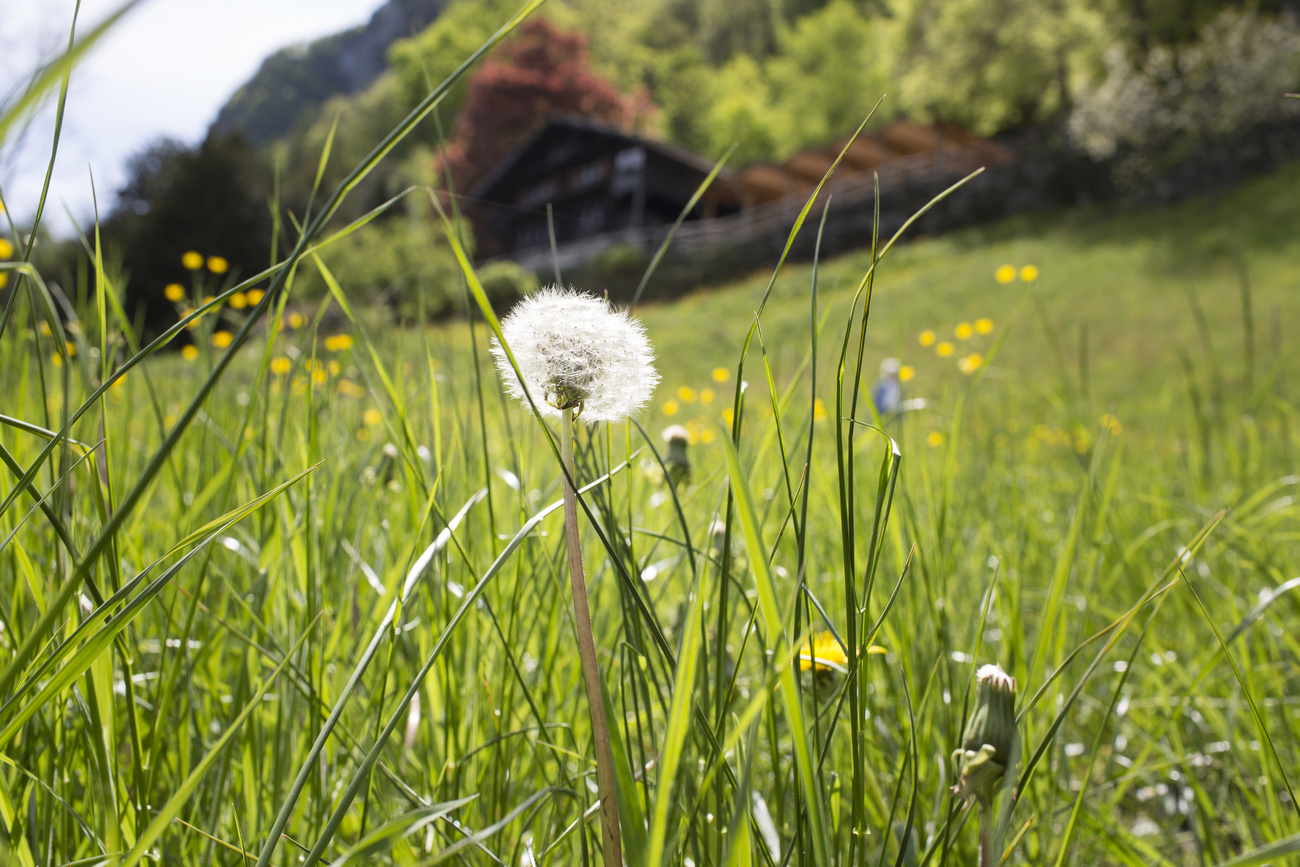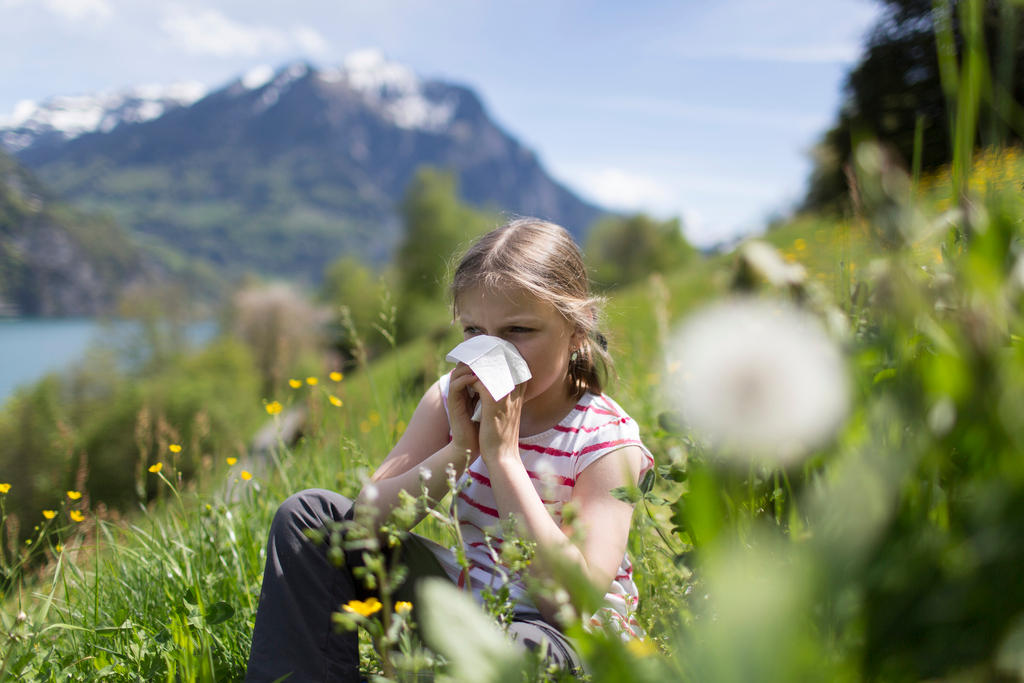
High pollen count drives uptick in allergy problems

As pollen levels reach record highs in parts of the country, doctors are reportedly treating more and more cases of related allergies, including hay fever.
The prevailing spell of high pollen levels is largely the result of the current dry, warm and somewhat windy spell of weather, RTS public radio reported on Monday.
“We are in the middle of the grassy season, June is the peak,” a specialist from Swiss weather service MeteoSwiss told RTS. “When you have sunny and dry weather coinciding with this period in time, it encourages the strong spread of pollen.”
+ The Swiss Alps: an allergy-free haven?
On Saturday, the Tribune de Genève newspaper reportedExternal link that consultations for related allergies at Geneva University Hospital had risen by 20-30% this year compared to 2022.
However, Lausanne University Hospital’s Yannick Muller told RTS on Monday that the figures – while not denying a surge in consultations – were not concrete enough to make bigger conclusions.
“The last study that I know of on Switzerland is over 20 years old. So I don’t think we have the figures to confirm the increase in cases of pollen allergies. These are only impressions, we would have to do studies,” he said.
The Swiss Allergy Center estimates that one person in five is allergic to pollen today, compared to one in 100 a century ago.
Longer season
The causes for this are various. Peter Schmid from Zurich University Hospital told Italian-speaking public radio RSI on Monday that the pollen season is getting longer, and now runs from “Christmas to October, with ever higher concentrations due to the lack of rain, as in Zurich at the moment”.
Schmid also said pollen species are becoming increasingly aggressive, due to smog, high temperatures and improved human hygiene conditions, which lowers the body’s defences over time.
Untreated, a pollen allergy can lead to asthma, RTS writes. And faced with hay fever, it is necessary either to be prescribed antihistamines, or to be “desensitised” via immunotherapy to reduce the symptoms – a long procedure which can last over three years.

More
Why are allergies on the rise in Switzerland?

In compliance with the JTI standards
More: SWI swissinfo.ch certified by the Journalism Trust Initiative































You can find an overview of ongoing debates with our journalists here . Please join us!
If you want to start a conversation about a topic raised in this article or want to report factual errors, email us at english@swissinfo.ch.